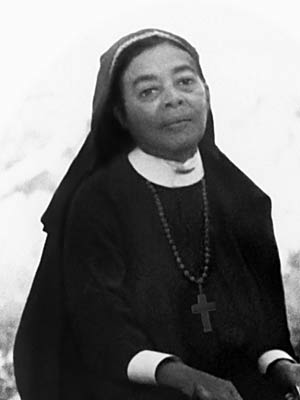Readings:
Deuteronomy 6:4-9
Psalm 78:1-7
2 Timothy 3:14-4:5
Matthew 11:25-30
Preface of Bapism
[Common of a Prophetic Witness]
[For Prophetic Witness in Society]
[For Social Service]
PRAYER (traditional language)
Loving God, who didst call Anna Alexander as a deaconess in thy church: Grant unto us the wisdom to teach the gospel of Christ to whomever we meet, by word and by example, that all may come to the enlightenment thou dost intend for thy people; through Jesus Christ, our Teacher and Savior. Amen.
PRAYER (contemporary language)
Loving God, who called Anna Alexander as a deaconess
in your church: Grant us the wisdom to teach the gospel
of Christ to whomever we meet, by word and by example,
that all may come to the enlightenment that you intend for
your people; through Jesus Christ, our Teacher and Savior.
Amen.
Lessons revised in Lesser Feasts & Fasts 2024.
Return to Lectionary Home Page
Webmaster: Charles Wohlers
Last updated: 26 July 2025
ANNA ELLISON BUTLER ALEXANDER
DEACONESS AND TEACHER, 24 SEPT. 1947
 Anna Ellison Butler Alexander (circa 1865 – September 24, 1947) was the first and only African-American consecrated a Deaconess in the Episcopal Church. She served in the Episcopal Diocese of Georgia during her entire career
Anna Ellison Butler Alexander (circa 1865 – September 24, 1947) was the first and only African-American consecrated a Deaconess in the Episcopal Church. She served in the Episcopal Diocese of Georgia during her entire career
Anna Alexander was born in 1865 to recently-emancipated slaves on the Butler plantation on St. Simons Island, Glynn Co., Georgia. Her father had been taught to read by the English actress Fanny Kemble (who later wrote an influential book condemning slave life there). Perhaps this encouraged Anna's interest in education.
The Alexander family soon moved to Pennick, Georgia, just outside Brunswick, to take advantage of land south of the Altamaha River previously held by poor whites. Her father became a carpenter-builder and a community leader.
Anna first taught at the public school in Pennick. Later, she moved to Darien, Georgia, where her sister Mary founded a school affiliated with St. Cyprian's Episcopal Church, and all three sisters taught. In 1894, with the cooperation of the Brunswick priest, Anna founded a mission in Pennick, while still teaching at Darien during the week, making a 40 mile round trip by boat and foot. The mission faltered when Anna accepted a position at St. Paul's Normal and Industrial School (as well as enrolled in the new teachers college there) in Lawrenceville, Virginia. In 1897, she returned to Pennick and revitalized the mission. The congregation was renamed Church of the Good Shepherd, and Alexander also started a school. She supported herself by taking in sewing, and managed to buy property in 1902, where her brother Charles Alexander and other men then erected a church.
In 1907, bishop Cleland Kinloch Nelson addressed the second annual meeting of the diocese's council of colored churchmen, held at the Church of the Good Shepherd, and consecrated Anna as a deaconess. She became the first and only African-American deaconess. She worked in the Altamaha River area for the rest of her life, teaching not only academic subjects, but also moral values.
The diocese of Georgia split in 1907 and Nelson chose to associate with the new Episcopal Diocese of Atlanta. His successor in the Diocese of Georgia, Frederick Focke Reese, excluded African-Americans from church government in the diocese, and extended almost no diocesan financial support to African-Americans. This forced Alexander and others to make do, as well as seek support from outside the diocese, including from the Episcopal Board of Missions. During the bad crop years of the late 1920s through the Great Depression, Alexander continued to work in her hardscrabble community, whose members built the current wooden church building in 1928.
Alexander died on September 24, 1947 and was buried at the cemetery at Camp Reese, a diocesan camp on St. Simons where she had worked. In 2004, she was reinterred at Good Shepherd Church in Pennick, which she had founded and where she had worked for many years.
more at Wikipedia